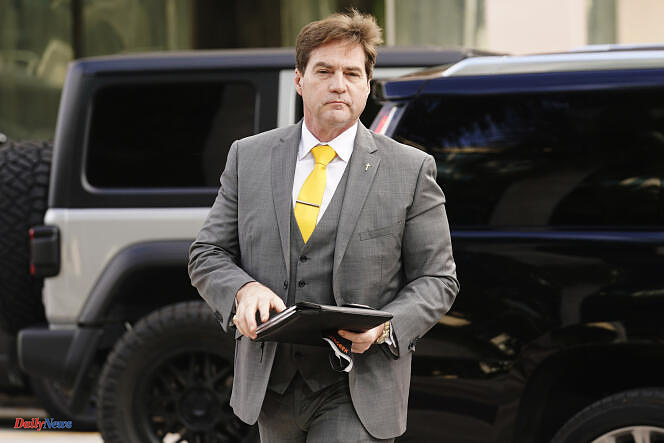A British judge ruled on Thursday March 14 that Australian Craig Wright, who claimed the authorship of bitcoin, was not its creator. “I have come to the conclusion that the evidence is overwhelming” to declare that “Dr. Wright is not the person who created the bitcoin system,” nor “the author of the initial versions of the bitcoin software,” said the Judge James Mellor closed the trial, explaining that he would detail his reasoning in his upcoming judgment.
The 53-year-old computer scientist and entrepreneur “is not the author of the bitcoin “white paper”, a text which details the founding principles of this cryptocurrency, nor the one who “operated under the pseudonym Satoshi Nakamoto during the period from 2008 to 2011,” the judge also said, referring to the enigmatic developer known as the father of bitcoin.
For nearly a month and a half, the British High Court of Justice examined the claims of the man his detractors nickname “Faketoshi” (for “false Satoshi”), who claimed copyright on this founding “white paper”. , as well as the code of this cryptocurrency.
Not a single “verifiable document”
“Dr Wright failed to provide even a single verifiable and reliable document to support” his claims, Jonathan Hough, the lawyer for the Crypto Open Patent Alliance (COPA), argued Tuesday during the trial. ), an association which aims to eliminate patents on technologies linked to cryptocurrencies. COPA brings together heavyweights like the exchange platform Coinbase and the company Block, specializing in digital payments.
Computer experts from both parties concluded in particular that the original file of the founding text of bitcoin would in fact have been produced in the OpenOffice software, and not via the LaTeX document composition system as Mr. Wright suggests.
Defense lawyer Anthony Grabiner, for his part, argued that his client had the skills related to law, monetary transactions and IT consistent with those necessary to invent bitcoin. During her testimony, Mr. Wright's sister praised his attraction to Japanese culture.
COPA “will ask after judgment” that British prosecutors consider criminal proceedings for “perjury and obstructing the course of justice,” the association explained in its final arguments, consulted by Agence France-Presse (AFP). Judge Mellor did not specify when he would make his written judgment public.
The outcome of this case will determine that of another, pitting Mr. Wright against twenty-six developers, individuals as well as companies like the Coinbase platform, which he accuses of having infringed his intellectual property rights . “This decision is a victory” because it puts an end to the “lie” used by Mr. Wright “to harass and intimidate developers in the bitcoin community” for eight years, a spokesperson told AFP. of COPA.
“Satoshi understood the value of decentralization and built bitcoin in such a way that it could not be controlled by a single person or entity,” a spokesperson for the platform responded to AFP. form Kraken, a member of COPA and which was the subject of legal proceedings by Mr. Wright.












